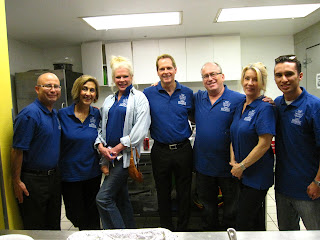Prestige MLS is pleased to welcome Rodeo Realty, a Los Angeles Real Estate Powerhouse, in the Business Club!
Rodeo Realty is proud to announce that we are expanding our international presence and have now partnered with Prestige MLS, Europe’s exclusive international luxury real estate organization to increase our global presence.
With Prestige MLS, property listings can be translated into 13 different languages and be viewed all around the world.
Visit http://www.prestige-mls.com/ for more information about luxury real estate listings in Europe and around the world and read Rodeo’s latest post on their website.
Rodeo Realty Increasing International Presence
Attorney's General Settlement with Mortgage Servicers
o low in our area for the demand. Obviously, some of your clients will wait a little while hoping to get notified. It will be like waiting for the Publisher’s Clearing House to notify them that they won. It won’t be long before its obvious that help is not on the way!
Rodeo Realty Beverly Hills H.O.M.E. Project
Rodeo Realty Beverly Hills- H.O.M.E. (Helping Others Means Everything) Project consists of a group of agents from Rodeo Realty’s Beverly Hills office who are working together to build a strong philanthropic presence in the Beverly Hills community and beyond. The group organizes and leads charitable activities to benefit local non-profit organizations.
Syd Leibovitch's 2012 Housing Predictions
I feel that 2012 represents the best year ever to buy a home. Prices are down and interest rates are at historic lows!
I predict that 2012 will be the year we begin to see year over year increases in the median price on both a local and a National level. I’d forecast a modest 5 percent increase in median home prices.
Interest rate forecast:
The reason that this year will present a unique opportunity is more interest rate related than price. Rates at 4 percent won’t be available for long. I would forecast mid 5’s by year end. While mid 5’s are great historic rates its a 25 percent increase from 4 percent. Most buyers look at their monthly payment as a big factor so remember even if homes stayed the same the payment would rise significantly as rates rise.
My basis for these forecasts stem from an increase in consumer confidence. Nearly every survey and gage of consumer confidence nationally suggests that we are headed for better times. Corporate profits are up and things are looking generally better. We have seen a rebound on the desire of buyers to buy. There is always people that think prices are so high they can’t go higher. I’ve heard that for 30 years yet they, over time continue to rise. The percentage of people that think its a good time to buy and those thinking its a bad time fluctuates. in 2005 it seemed like just about everyone thought it was a good time to buy. In 2008 it seemed like just about everyone thought it was a bad time to buy. Over the last year I’ve seen a building sense of optimism and more serious buyers.
When it comes to home buyers here is how I’d break it down:
First time buyers. With prices down 30 percent from their highs and rates down a 600,000 loan has a 1100 per month lower payment than it would have had in 2006. A 1,000,000 home in 2006 would now be 700,000. So basically a buyer could buy a home that was 1,000,000 for 700,000 and pay 2500 less a month had they bought that same home 5 years ago! FHA financing also allows buyers to buy a home with a 3 1/2 percent down payment. In many cases for not much more than first month rent and a 2 month security, and with today’s low interest rates the payment is usually similar to the rent! There has never been a better time to buy.
Investors. If you consider how many of the wealthiest people made their fortune in Real Estate it only makes sense to be a long term Real Estate investor. With prices about 30 percent off their highs and low interest rates there has never been a better time to invest.
Move up buyers. Once I went to get my car serviced. The leasing salesperson met me when I picked up the car. He told me he could get me out of my current lease and lease me the new, better, current model with the same payment. He said “all you need to do is switch keys”. I did it! With lower interest rates and lower prices we have people that can buy homes they could have never afforded before. Consider the above scenario with the 1,000.000 home now being 700,000. We have had clients that wouldn’t have been able to afford the million dollar home in 2006. It was their dream home but they could only afford 700,000. Now that million dollar home is 700,000 and the lower interest rates makes the payment $1100 per month less than the 700,000 home they bought 6 years ago. Sure they have to take a loss on that home, but save on the new purchase. At the end of the day many people have found that they can sell their home and buy a better one for about the same monthly payment!
Rent your home and buy a new one:
This is what I just did and I’m encouraging all my friends to do the same. The goal should be buy low sell high! If you could afford to buy a new home and rent your current home I don’t think you will ever be sorry. Your home will undoubted be worth more down the line, but when its worth more so will the one you would be buying. Ever thought about being a Real Estate investor. Why not start now with a property you know?
Local Real Estate Market Reports Are Now Posted!
Check out the most recent real estate market reports for your area!
At Rodeo Realty, we believe education is the key to helping clients make the best possible decisions about buying and selling homes. Our comprehensive reports provide in depth analyses of real estate trends in specific communities. These analyses demonstrate the changes in market conditions varying from city to city in San Fernando Valley and Los Angeles.
Now you can catch Rodeo Realty President,Syd Leibovitch on Facebook!
Stay up to date with all Rodeo Realty news through our Facebook page and Syd Leibovitch ‘s new page!
Congrats Rodeo Agents! You're #1 in Everything!
Rodeo Realty: The Los Angeles Real Estate Powerhouse
Rodeo Realty: The Los Angeles Real Estate Powerhouse
Beverly Hills, CA – January 17, 2012
Rodeo Realty Inc., the Beverly Hills based luxury real estate firm, has had record expansion in 2011. Syd Leibovitch, owner and president, announced the firm had the best year in its 26 year history. Despite the current economic outlook of the housing market, Rodeo Realty has overcome the rough reality of the housing down fall, and thrived using it as a platform to flourish, expand and build a solid team of agents. In 2011, closed sales for the firm were up an astonishing 20% from the previous year.
“Yes, it looks like I am bucking a trend and I am, but I do have a strategy,” said Leibovitch. While most companies have consolidated and cut back, Rodeo Realty has expanded, hired more agents and opened four new offices in Los Angeles. In 2007, Rodeo Realty, Inc. housed 700 Realtors and today has grown to over 1000 Realtors in Los Angeles.
Rodeo Realty, Inc. occupies the position as the number one real estate firm in sales volume in many of the southern California markets. Leibovitch expects to maintain this position throughout the New Year, “I predict the market will take a positive turn in 2012, and I believe we will begin to see an increase in the median price at both a local and national level.” As corporate profits increase, consumer confidence is beginning to rise, and hopes of a near housing recovery tend to surface the horizon. Leibovitch provided compelling housing market predictions for 2012; 5-10% increase in home median price on a local and national level, an increase in interest rates from 4% to 5 %, increase in bank owned properties being sold and an overall increase in sales. The goals in 2012 for Rodeo Realty are simple, expand and acquire more of the best agents in Los Angeles and when the housing market flips for the better, Rodeo Realty will uphold their position as a real estate powerhouse.










